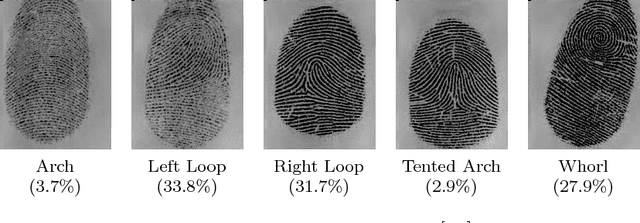On the use of convolutional neural networks for robust classification of multiple fingerprint captures
Paper and Code
May 15, 2017



Fingerprint classification is one of the most common approaches to accelerate the identification in large databases of fingerprints. Fingerprints are grouped into disjoint classes, so that an input fingerprint is compared only with those belonging to the predicted class, reducing the penetration rate of the search. The classification procedure usually starts by the extraction of features from the fingerprint image, frequently based on visual characteristics. In this work, we propose an approach to fingerprint classification using convolutional neural networks, which avoid the necessity of an explicit feature extraction process by incorporating the image processing within the training of the classifier. Furthermore, such an approach is able to predict a class even for low-quality fingerprints that are rejected by commonly used algorithms, such as FingerCode. The study gives special importance to the robustness of the classification for different impressions of the same fingerprint, aiming to minimize the penetration in the database. In our experiments, convolutional neural networks yielded better accuracy and penetration rate than state-of-the-art classifiers based on explicit feature extraction. The tested networks also improved on the runtime, as a result of the joint optimization of both feature extraction and classification.
 Add to Chrome
Add to Chrome Add to Firefox
Add to Firefox Add to Edge
Add to Edge